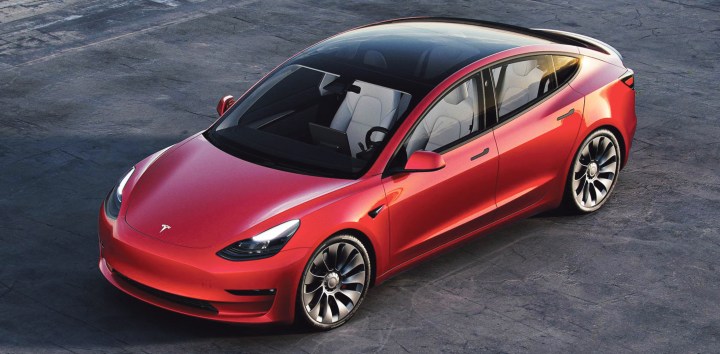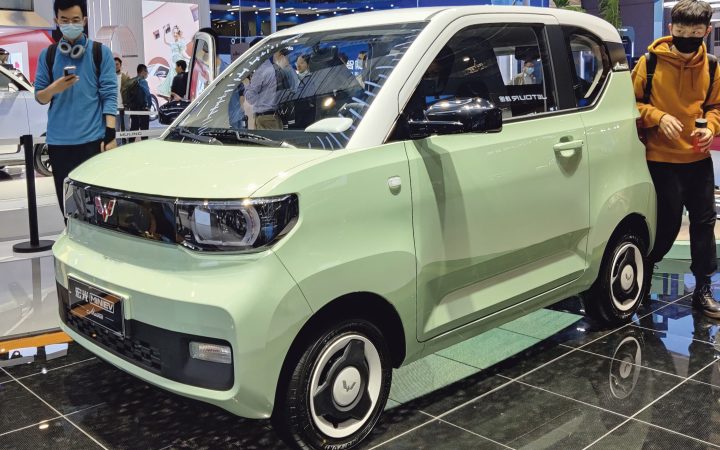VROOM WITH A VIEW
Owning an electric vehicle could become easy like sundae morning

In his novel The Sun Also Rises, Ernest Hemingway summarised in a passage of speech how events can overtake even those who feel they are prepared.
‘How did you go bankrupt?” Bill asked.
“Two ways,” Mike said. “Gradually and then suddenly.”
I think the lesson might be that by the time you get to the “suddenly” stage of things, it can be too late to act. This is not necessarily to stand in judgement of those who do not act during the “gradually” phase. After all, making hugely consequential changes of strategy on the basis of limited data and incremental changes in trends is only bold and visionary when you are right. When you are wrong, the words “irresponsible” and “foolish” might bounce off the walls at the AGM.
Either way, technology journalists and a few motor industry watchers have been saying for years that a time will come soon, in the coming few years, when we reach the electric car inflection point, beyond which we have drifted without fanfare from Hemingway’s “gradual” to his “suddenly”.
After that, if you are in the car manufacturing game, you’d better be ready to sell electric cars.
In Europe, the car market has blasted into “suddenly” somewhat suddenly.
There are factors to consider – such as the distortions that the superconductor shortage are causing in automotive markets, the tendency of US car manufacturers to push hard for sales targets in September, the chatter about the imminent demise of the internal combustion engine at COP26 and, of course, the ongoing tax/rebate/parking/congestion zone incentives offered by some European governments, states and cities to help people switch to electric vehicles (EVs).
But still, if this isn’t “sudden” then I don’t know what is. In September Jato, a motor industry data company, announced that in Europe in August EVs and plug-in hybrid electric vehicles outsold diesel cars. A month ago that seemed like a pretty big deal, but today it feels like old news. Last month, Tesla surged past a billion dollars in market cap, which sent Elon Musk memes and Twitter into overdrive. Less meme-able was what the triggers for this were. Firstly Hertz, the car rental company, placed an order for 100,000 cars with Tesla. Then, hot on the heels of that news, Jato’s surely exhausted PR team announced that Europe’s bestselling car (not the bestselling EV, the bestselling car, period) in September 2021 was the Tesla Model 3 (24,591), followed by the Renault Clio (18,264), Dacia Sandero (17,988) and Volkswagen Golf (17,507). It also happens to be the first time a non-European car has ever taken that spot.
A factor worth considering is that Tesla has not been able to meet the demand for its products for some time. It would be reasonable to guess that these sales were made without discounts – even for 100,000 units. Volkswagen and Toyota must look upon this and weep.
Some will say that this is a flash in the pan and that normality will return. I’m not so sure. This may be a spike in the graph but follow the curve. Tesla’s big week illustrates what some motor industry watchers have already seen in reports that don’t go viral. In September a London taxi company announced it was adding 200 Volkswagen EVs to its fleet every month. LeasePlan, a European auto leasing and fleet management company with nearly two million vehicles under management in 30 countries, said earlier this month that in “the majority of European markets” it was finding that EVs have crossed the Total Cost of Ownership rubicon and are getting cheaper fast, and in many countries by hundreds of euros a year.
Hertz’s monster punt on an electric fleet, and the fast-shifting car-buying habits of European motorists, would seem to bear this out; electric cars are cheaper to own and run than petrol or diesel cars in those markets.
I think part of this momentum comes from bums in seats, from enough people experiencing the technology (and its ease of use). So, what of us? In the SA market, Toyota has decided to price its new hybrids (Corolla and RAV4) aggressively to spur uptake of the technology. I hope people go and drive them because they’ll halve their fuel bills.
But what of EVs? Those of you who have seen the price of new cars might not be surprised that the electric stuff due to come here is expensive. The government likes to pile on a 26% border tax on EVs in order to keep them out of reach of ordinary motorists. This protects the fuel levy and so the fleecing of the struggling middle-class motorists at the pumps goes on.
This is so crushingly regressive in so many ways it hurts the head to even think about it, but this is the government so there is little point in seeking sense.
The car companies are pressuring the government to reconsider its tax structures, not least to create a market for EVs here that might help justify the cost (Transnet) and risk (the ANC’s civil war over the spoils of future crime) of continuing to build cars in this country (8% or so of our GDP). It may be too late for some car plants, as per the Hemingway principle.
The good news is that some car companies are doing remarkable stuff, making EVs so cheap that the government’s tax blunders might not entirely hinder progress. In China, a tiny city EV with a range of 100km is surging in popularity and sells for under $5,000. It’s called the Wuling Mini EV and it outsells the Tesla Model 3 two-to-one.
I saw last month that Chery, a Chinese car company that has recently returned to South Africa after a disastrous first stab at the market a decade or so ago, has in China released a similar car called the Chery QQ Ice Cream, but with better range – up to 170km. It’s available from about $4,600 (about R70,000).
Regrettably, Chery did not respond to my queries, but I reckon – as a second car – a sub-R100k, four-seat urban EV with a range of 170km that you can charge with a standard three-point plug would sell like wors rolls at the rugby, meaning that we in SA could join the electric revolution too. DM168
Alexander Parker is a journalist, author and consultant.
This story first appeared in our weekly Daily Maverick 168 newspaper which is available for R25 at Pick n Pay, Exclusive Books and airport bookstores. For your nearest stockist, please click here.





















 Become an Insider
Become an Insider
Comments - Please login in order to comment.